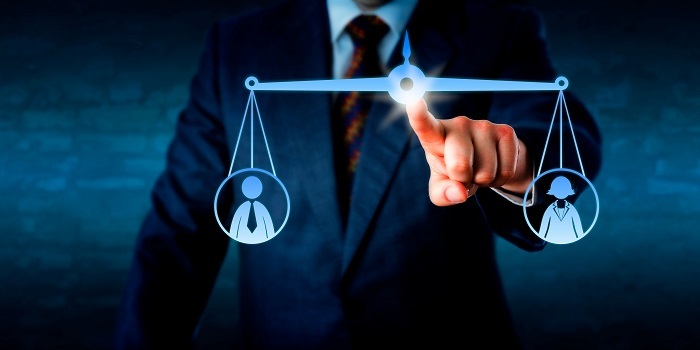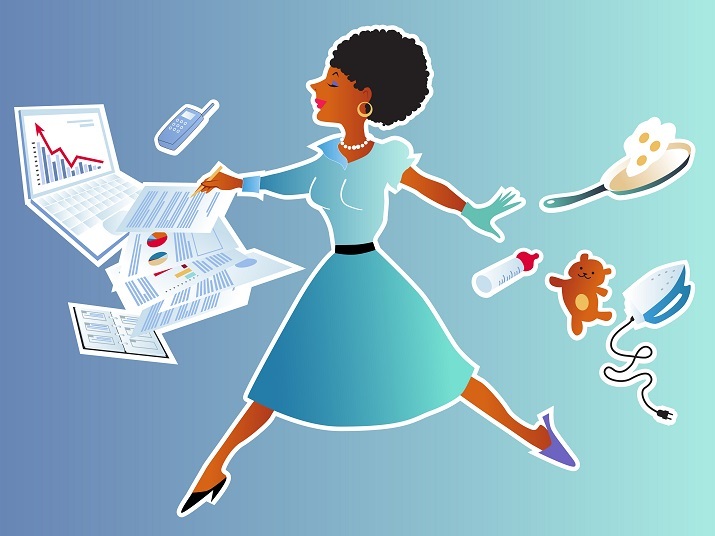

It's no secret that gender roles have changed dramatically over the last few decades. What was once an obvious divide between what was "acceptable" for men and women to do is now much more blurred. But despite these changes, there are still many areas where society expects people to conform to traditional gender roles. In this tutorial, we'll explore some of the ways that gender affects our lives, both in the past and present.
Gender is a social construct that determines the roles, behaviors, and activities that society assigns to men and women. It is a way of distinguishing between males and females. In most societies, gender is a binary system with only two options: male or female. However, some cultures recognize other genders, such as the third gender or transgender people.
Gender is not the same as sex. Sex is the biological characteristics of a person, for example, the sex chromosomes a person has are their hormones, and their reproductive organs. Gender, on the other hand, is the social meaning that is given to these sex characteristics. In other words, gender is what society says about being male or female.
Gender norms are the expectations that society has about how men and women should behave. These norms vary from culture to culture and can change over time. For example, in many Western cultures today, there are fewer gender norms than there were in the past. This means that people have more freedom to express themselves in ways that do not conform to traditional ideas about gender.
Gender inequality is the unfair treatment of people based on their gender. This can happen in men and women, but it is often directed towards women.

How we understand gender is deeply rooted in the societies in which we live. Our beliefs and attitudes about what it means to be male or female are shaped by the norms and values of our culture. These ideas about gender are passed down from generation to generation and play a powerful role in our lives.
Gender is not simply about biological differences between men and women. It is also a social construct, which means that it is created and maintained by society. How we behave, dress, and speak are all examples of how we express our gender.
Gender norms vary from culture to culture. In some societies, women are expected to be submissive and care for the home, while men are expected to be aggressive and provide for the family. In other cultures, these roles may be reversed.
The social construction of gender is a complex process, but it plays a significant role in our lives. It shapes our identity and influences the way we interact with the world around us.
How does gender impact society? This is a question that has been debated for centuries, with a variety of different answers. Some believe that gender negatively affects society, while others believe that it has a positive impact. There are many factors to consider when debating this topic, such as history, culture, and religion.
Some argue that gender harms society because it creates inequality between men and women. This inequality can be seen in several different areas, such as the workplace, education, and even in the home. Women have traditionally been seen as inferior to men and have been treated as such throughout history. While there have been some gains made in recent years to close the gender gap, there is still a long way to go.
Others believe that gender has a positive impact on society. They argue that without gender, there would be no differentiation between people and everyone would be the same. They believe that gender provides individuals with unique identities and roles that contribute to the overall fabric of society. Without gender, they argue, society would be boring and lack variety.
So, what is the truth? How does gender affect society? The answer is likely somewhere in the middle. Gender does have an impact on society, but it is not all good or all bad. It is important to remember that gender is just one factor contributing to the overall social landscape.
Many factors determine gender roles in society. One of the most important is biology. Men and women are born with different physical characteristics, leading to different societal roles. For example, men are typically stronger than women, so they may be more likely to participate in activities that require physical strength.
Gender roles also vary based on culture. In some cultures, women are expected to be submissive and take care of the home and children, while men are expected to be the breadwinners and protectors of the family. In other cultures, there may be more equality between genders, with both men and women participating in work and childrearing.
The society also plays a role in shaping gender roles. For example, boys are typically encouraged to play with "boy" toys like trucks, while girls are encouraged to play with "girl" toys like dolls. This can lead to gender stereotypes, where people believe that certain activities or interests are only for boys or girls.
Over time, gender roles have changed considerably. In the past, women were largely confined to the home, but now they participate in all aspects of society. Men used to have a monopoly on many jobs, but now women are present in almost every profession. There is still inequality between genders in some areas, but overall, society is becoming more egalitarian.
Gender inequality is a major issue in our society. It manifests itself in many ways, including unequal pay for women, lack of opportunities for women, and discrimination against women.
This inequality is unfair and unjust, and it needs to be addressed. We need to work together to create a society that is equal for all. We can start by educating ourselves and others about gender inequality and its effects on our society. We can also support organizations that are working to end gender inequality. Together, we can make a difference.
A gender-equal society is one in which both men and women are treated equally, with the same rights and opportunities. This can occur in both personal interactions and in larger social institutions such as education, the workplace, and the government.
A gender-equal society is not only fairer for everyone involved, but it also has been shown to lead to better outcomes for economies and communities. When women are given the same opportunities as men, they can contribute more fully to society and help to create a more prosperous future for all.

Feminism is a social and political movement that seeks to achieve equality for women. Feminists believe that women have been oppressed for centuries and that this oppression has taken many different forms. Feminism strives to end discrimination against women in all areas of life, including in the workplace, in education, in the media, and the legal system. Feminists also work to ensure that women have the same rights as men when it comes to marriage, divorce, child custody, and other areas of family law. In recent years, the feminist movement has also focused on issues such as reproductive rights, sexual harassment, and violence against women.
Gender roles play a significant role in society. They dictate how we behave, how we are expected to behave, and what is considered appropriate for each gender. While there has been some progress made in recent years to break down these barriers, there is still a long way to go. We must continue to have these conversations and work towards a future where everyone is free to express themselves however they see fit, without judgment or discrimination.
Q1. What is gender?
Ans. Gender is a social construct that determines the roles, behaviors, and activities that society divides among the sexes.
Q2. What are gender roles?
Ans. Gender roles are behaviors and activities that society suggests are appropriate for people of each sex. Society teaches these gender roles from a very young age. Different cultures teach gender roles in different ways, but most divide the sexes into masculine and feminine roles.
Q3. Is the word "gender" specifically feminine?
Ans. The word "gender" is not exclusive to a certain gender; there are males, females, and those who identify as something other than male or female.
Q4. What is Gender and Society?
Ans. Gender is about social classification. Society defines what gender is based on the functions it assigns to each sex. Gender and society can be just two concepts if we are talking about the difference between males and females, but some societies also include more than one gender.
Q5. How does gender determine or influence social status and roles?
Ans. Some social scientists believe that many societies assign some general qualities to males and females that are broadly applied with few or no exceptions. They believe that males and females will have different social statuses depending on the culture, such as those of a higher income or low wage-earners. Some of these characteristics include income, occupation, family responsibility, and their power in society.